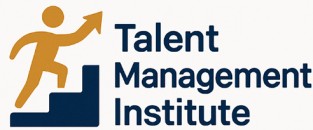Understanding the Power of Censia and Zendesk
Unveiling the Synergy between Censia and Zendesk Technologies
In today's fast-paced business environment, the convergence of advanced technologies in talent management has significant implications for enhancing organizational capabilities. One remarkable collaboration is between Censia and Zendesk, both leaders in their respective domains. This partnership brings together powerful data-driven solutions and robust customer support functionalities to create an integrated system that supports comprehensive talent acquisition and engagement. Censia stands as a formidable force in the realm of talent intelligence, providing companies with cloud-based software that automates and enhances the recruitment process. Using empirical data and analytics, it aids in identifying potential candidates who fit the precise market fit for a business, streamlining efforts toward a more educated choice in hiring. The integration of their API with other management software ensures seamless operations in talent management systems, adding efficiency to the hiring workflow. On the other hand, Zendesk is globally recognized for its proficiency in customer service solutions. Their web services platform facilitates real-time communication and efficient management of customer queries, which can be vital in talent engagement. By leveraging Zendesk’s cloud-based customer service technology, businesses can align their employee engagement strategies with sales marketing and financial management objectives, ensuring a cohesive operational structure. Combining the cutting-edge features of Censia with Zendesk’s robust capabilities results in a powerful integrated solution. This synergy supports ongoing improvements in talent engagement, while concurrently offering insights into the evolving landscape of talent management technologies. Companies that adopt such innovative solutions are well-positioned to enhance their management systems, thereby bolstering their competitive edge and achieving sustained success in today's dynamic environment.Leveraging AI for Better Talent Acquisition
Harnessing Artificial Intelligence for Superior Talent Acquisition
In today's competitive marketplace, leveraging artificial intelligence has become essential to surmount challenges in talent management. Companies seek efficient methods to identify the ideal candidate, and AI-driven tools offer notable advantages. AI technology in talent recruitment optimizes various aspects, from education background analysis to skillset assessment, which can be particularly beneficial when managing large volumes of candidate data. For instance, AI solutions can analyze data from candidates' resumes, education history, and previous job experiences at remarkable speed and accuracy, establishing a strong market fit for organizations seeking to refine their hiring processes. With open source tools and cloud-based systems, businesses can tailor their talent management approaches to align with specific organizational needs. Integrating AI within management software allows enterprises to filter potential employees based on predefined labels consistent with the company's culture and objectives. Furthermore, AI application programming interfaces (APIs) integrate seamlessly with various existing systems—be it a data warehouse for financial solutions or a web services platform for sales and marketing. This seamless integration ensures real-time updates and insights, enabling organizations to maintain an edge in candidate selection. On a global scale, especially in regions like Asia Pacific, embracing AI technologies is not just an optional enhancement but a requisite to survive the competitive landscape. With AI's assistance, organizations can provide a unique and systemic approach to talent acquisition, minimizing biases and ensuring that the most qualified individuals are prioritized, thereby revolutionizing business operations and customer service in the recruitment sphere. Ultimately, by melding AI with talent management strategies, companies can drive better outcomes, refining their hiring process to suit the evolving digital landscape and optimizing resources such as financial management, email addresses utilization, and customer service operations through intuitive, cloud-based platforms. This innovative approach positions businesses to adapt and thrive as technology continues to evolve.Streamlining Communication with Zendesk
Optimizing Interaction Channels
In the dynamic landscape of talent management, streamlining communication is paramount to effectively harness the capabilities of modern technology. Integration with Zendesk offers a platform where communication channels are consolidated, creating a seamless flow of information crucial for data-driven decision-making in talent management.
Businesses often face challenges in managing numerous candidate touchpoints. Aligning Zendesk's capabilities with talent management systems paves the way for optimizing these interactions. For instance, cloud-based systems allow for real-time tracking and response, enhancing the quality of customer service and ensuring a more efficient recruitment process.
The integration facilitates the gathering of valuable info from various stages of the recruitment process, which can be stored in a data warehouse. Consequently, companies can leverage this data to improve candidate engagement and make informed decisions concerning hiring strategies. The bidirectional data flow enabled by Zendesk APIs ensures that all databases remain synchronized, enhancing overall talent intelligence.
Moreover, when combined with data solutions from software like Zoho CRM, businesses can create comprehensive profiles that track applicant interactions across platforms. This data not only feeds into financial management systems but also assists in better resource allocation and optimization of sales marketing strategies, ensuring a market fit for the talent solutions offered.
As we look at education and school systems preparing future talent, aligning with solutions like Zendesk ensures these institutions can guide their students effectively through open source management software. Companies, especially those in the Asia Pacific region, benefit significantly from these advancements, as they can leverage the aggregated data to match talent with open positions swiftly and effectively.
Exploration of AI training roles similar to outlier further enhances understanding of how emerging technologies revolutionize talent management. These integrations are not just optional but essential for shaping future trends in hiring and employee engagement.
Integrating Systems for Seamless Operations
Integrating Platforms for Unified Operations
In today's fast-paced business environment, the integration of various systems is crucial for seamless operations. By combining the capabilities of Censia and Zendesk, companies can create a powerful ecosystem that enhances talent management and improves overall efficiency. This integration is not just about connecting software; it's about aligning technology with business goals to optimize processes and drive success.
One of the main advantages of integrating these platforms is the ability to leverage real-time data. With a cloud-based infrastructure, businesses can access and analyze information instantly, making informed decisions that enhance talent acquisition and management. This capability is especially beneficial in the Asia Pacific region, where market dynamics are rapidly evolving.
Moreover, integrating systems allows for a more streamlined approach to handling candidate information. By using APIs, companies can ensure that data flows smoothly between platforms, reducing the need for manual entry and minimizing errors. This not only saves time but also enhances the accuracy of the information being processed.
Incorporating a unified management system also facilitates better communication across departments. Whether it's sales, marketing, or customer service, having a single source of truth ensures that everyone is on the same page. This alignment is crucial for businesses looking to maintain a competitive edge in the market.
Furthermore, the integration supports the use of open-source technologies, providing companies with flexible solutions that can be tailored to their specific needs. This adaptability is essential for businesses aiming to achieve a product-market fit and address unique challenges in talent management.
Overall, integrating systems like Censia and Zendesk offers numerous benefits, from enhanced data management to improved operational efficiency. By embracing these technologies, companies can not only improve their talent management strategies but also position themselves for future growth and success.
Enhancing Employee Engagement through Technology
Boosting Employee Engagement through Innovative Solutions
In today's rapidly evolving business landscape, leveraging technology can significantly enhance employee engagement—a critical component of effective talent management. By integrating advanced systems such as Censia and Zendesk, companies are able to foster a more seamless and collaborative work environment.
Firstly, these technologies support a comprehensive cloud-based environment that enables real-time collaboration and communication. Employees benefit from reduced barriers to information flow, allowing them to access essential data and resources swiftly, thereby promoting productivity and satisfaction. By aligning communication channels through platforms like Zendesk, companies can streamline customer service and ensure that responses are timely and efficient.
The impact of AI-powered systems like Censia goes beyond talent acquisition; by applying AI insights, organizations can personalize professional development paths, ensuring that employees feel valued and understood. This approach not only supports employee retention but also builds a culture of continuous learning and growth.
The integration of such technologies can also enhance data management. Comprehensive data utilization, supported by a robust data warehouse, helps in identifying trends and areas for improvement across employee engagement strategies. By analyzing this data, organizations can implement informed, tactical interventions tailored to specific needs.
Moreover, the use of APIs and management systems allows for seamless integration across different business functions, such as HR, financial management, and sales marketing. This interconnectedness ensures that all aspects of the business are aligned with the overarching goals, enhancing employee satisfaction and engagement.
In summary, enhancing employee engagement through technology requires a shift towards integrated, cloud-based, and data-driven solutions. By effectively leveraging these advancements, companies can cultivate an engaged workforce that not only meets but exceeds expectations, driving success in a competitive market.
Future Trends in Talent Management Technology
Emerging Technologies in Talent Management
The landscape of talent management is evolving rapidly, driven by technological advancements and the need for more efficient systems. As businesses strive to find the right product market fit, they are increasingly turning to cloud-based solutions and open-source technologies to enhance their talent management strategies.
One of the most significant trends is the integration of artificial intelligence (AI) into talent management systems. AI-powered tools are transforming how companies identify and engage with candidates, offering talent intelligence that helps businesses make informed decisions. By leveraging AI, companies can analyze vast amounts of data in real time, improving the accuracy of candidate assessments and streamlining the recruitment process.
The Role of Data and Cloud Technologies
Data plays a crucial role in modern talent management. With the rise of cloud technologies, companies can now store and manage large volumes of data more efficiently. Cloud-based management software offers flexibility and scalability, allowing businesses to adapt to changing needs quickly. This shift towards cloud solutions is particularly evident in regions like Asia Pacific, where companies are seeking innovative ways to enhance their talent management capabilities.
Moreover, the integration of data warehouses and APIs enables seamless communication between different management systems. This connectivity ensures that all relevant information is easily accessible, enhancing the overall efficiency of talent management processes.
Enhancing Employee Engagement with Technology
Technology is not only transforming recruitment but also enhancing employee engagement. By utilizing advanced management software and web services, companies can create a more connected and collaborative work environment. This is crucial for maintaining high levels of employee satisfaction and retention.
For instance, platforms like Zendesk facilitate effective communication and customer service, which are essential for fostering a positive workplace culture. Additionally, educational tools and resources can be integrated into the talent management system, providing employees with opportunities for continuous learning and development.
Looking Ahead: Future Directions
As we look to the future, it is clear that technology will continue to play a pivotal role in shaping talent management. Companies will need to stay abreast of emerging trends and technologies to remain competitive in the market. This includes exploring new solutions for financial management, sales marketing, and customer service that align with their business objectives.
Ultimately, the successful integration of these technologies will depend on a company's ability to adapt and innovate. By embracing new tools and strategies, businesses can enhance their talent management processes and drive long-term success.




-large-teaser.webp)







